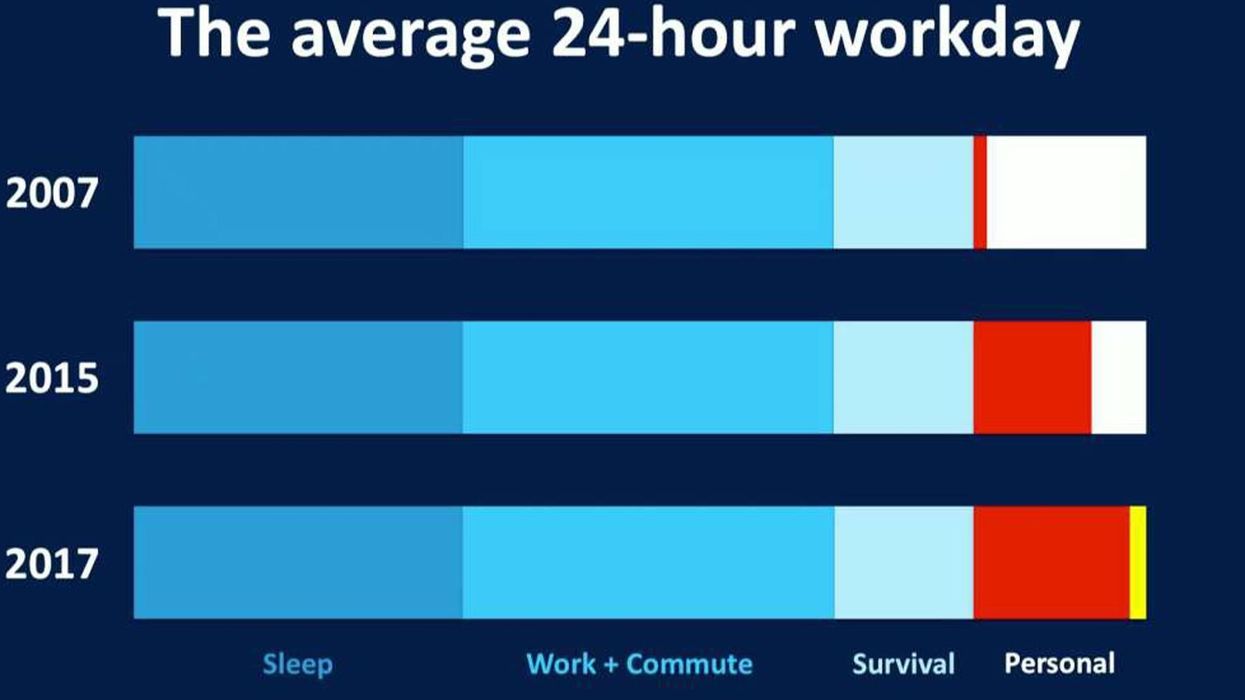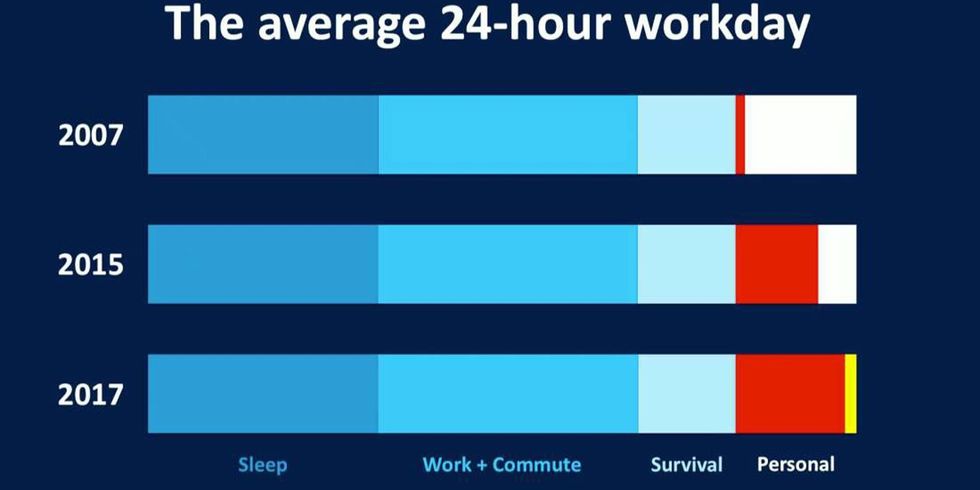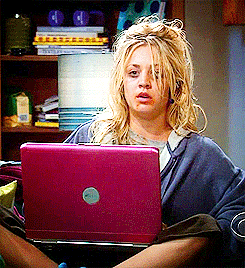News
Bridie Pearson-Jones
May 21, 2017

Picture:
TED/Screengrab
If you feel like you have no free time, it's probably because you don't.
At least compared to 10 years ago. At Ted 2017 Adam Alter, an psychologist at New York University presented three charts that make up the average workday.

The blue segments show time sleeping, working and commuting, and "survival" (things like washing and eating), which have consistently taken up about two -thirds of day.
The red shows times in front of a screen and the yellow and white show "free time".
In 2007, the amount of time we spent in front of screens was minimal, now it eats up nearly all our free time.
Adam Alter spent the last five years studying the effect of screens on our lives.
In his Ted Talk, Alter points out that the time in front of screens "robs us of stopping cues" meaning we have no obvious signals to tell us to get away from the screens and do something else.
If we read a newspaper or book, we reach a natural end, such as the end of the page or a chapter. Whereas with screens “the newsfeed just rolls on.”
Not all screen time is bad, some make us feel good, according to Alter. We spend an average on 9 minutes a day on apps that enrich us, like weather and health apps, but three times that (27 minutes) on apps that make us feel worse, like news browsing or gaming.
Alter urges that we take breaks from our screens.
In his talk Alter urged the crowd to rethink their attachment to screens, saying they lead to feelings of isolation. He added you can create a healthy balance by blocking certain social media sites or abstaining from using devices altogether.
you get used to it, you overcome the withdrawal like you would with a drug, and life becomes more colourful, richer.
More: Smart people need more time alone, according to this study
Top 100
The Conversation (0)














